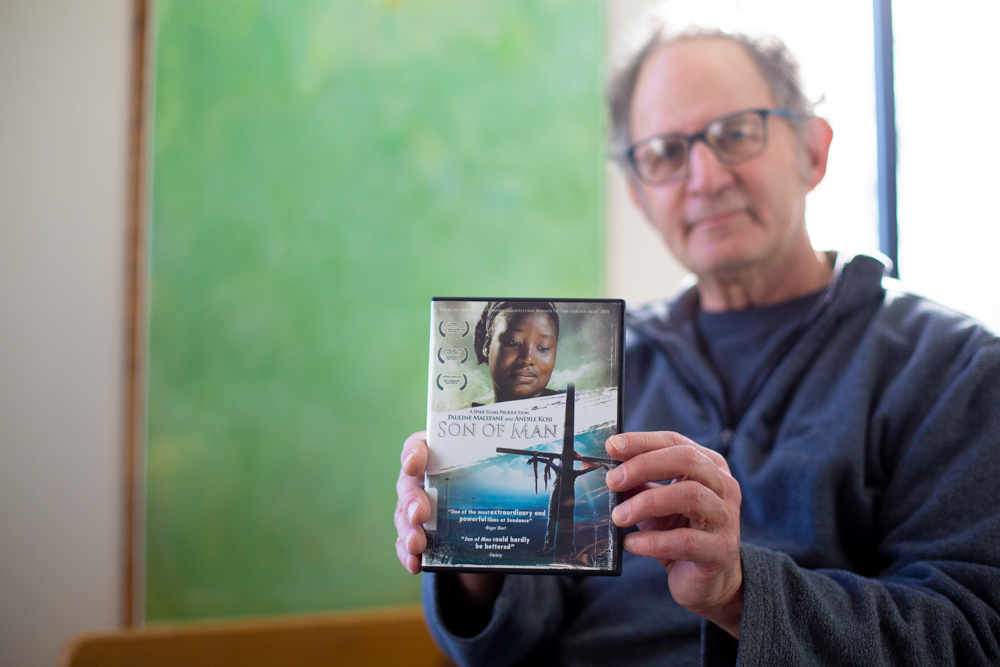Effective immediately, EMU has cancelled all public events through April 3 in response to concerns about COVID-19.
The Colloquium with Dr. Saher Selod for March 18 will hopefully be rescheduled for the fall semester. The film “The Plastic Problem” on March 25 will be rescheduled for sometime in April or May. Please continue to check back to this page for updates about these events.
For more information about EMU’s COVID-19 action plan, visit emu.edu/coronavirus.
The Center for Interfaith Engagement at Eastern Mennonite University announces its fifth annual spring 2020 film series on the themes of environmental justice and faith.
The center, celebrating its 10th anniversary this academic year, partners with individuals and organizations and promotes collaboration among scholars and practitioners to build a more just and peaceful world through interreligious and intercultural understanding.
Each film showing will be introduced by Bob Bersson, Visiting Jewish Scholar and emeritus professor at James Madison University, followed by analysis and a question-and-answer session with experts from the local community. Admission is free and all are welcome.
With Bersson as host, CIE has hosted four spring film series in the past, which were well-attended and sparked thought-provoking discussions, said Trina Trotter Nussbaum, associate director.
“Issues of climate, sustainability, and environmental justice permeate the news,” said CIE director Timothy Seidel. “This year’s spring film series will create space for conversations on how faith informs our engagement on these issues, and how these issues create opportunities for interfaith engagement for persons of faith relating across faith difference as they engage these important issues.”
Film schedule
- Jan. 20, 7 p.m., Suter Science Center 106 (in conjunction with EMU’s MLK Day of Learning and Service). “Son of Man” (1 hour, 26 minutes), a 2006 production directed by Mark Dornford-May tells the story of Jesus in a South African context. Among other honors, this film was the first South African film to debut at Sundance Festival.
- Feb. 19, 7 p.m., Seminary Building 123. “The Need to Grow” (1 hour, 36 minutes), a documentary about individuals fighting for change in the industry of agricultural food production in the race against the end of farmable soil. From the website: “The Need to Grow delivers alarming evidence on the importance of healthy soil — revealing not only the potential of localized food production working with nature, but our opportunity as individuals to help regenerate our planet’s dying soils and participate in the restoration of the Earth.”
- March 25, 7 p.m., Seminary Building 123, “The Plastic Problem” (54 minutes), a PBS documentary with Newshour reporters exploring the growth, disastrous impact, and possible solutions of “one of the greatest environmental threats facing humans and animals globally.”
- April 22, 7 p.m, Seminary Building 123, “Happening: A Clean Energy Revolution” (1 hour, 11 minutes). From the website: “Filmmaker James Redford embarks on a colorful personal journey into the dawn of the clean energy era as it creates jobs, turns profits, and makes communities stronger and healthier across the US. Unlikely entrepreneurs in communities from Georgetown, TX to Buffalo, NY reveal pioneering clean energy solutions.”
About the moderator
Bersson is a James Madison University emeritus professor who founded the Interfaith Initiative for Peace and Justice in Harrisonburg. He led film series for CIE in 2014 and 2015 on the Israeli/Palestinian conflict in 2014 and 2015; in 2016 on human rights, environmental and social justice leaders; and in 2019 on aspects of xenophobia, discrimination and white supremacy. Last year’s film series specifically highlighted the experiences of local and regional faith communities, in order to build interfaith relationships and networks built on equity and trust.
Bersson taught modern and contemporary art history, aesthetics, art criticism and art appreciation at James Madison University for 20 years. He has studied Hebrew and Arabic and visited Israel/Palestine several times, where he has family and friends.
After he retired from JMU in 2003, he spent 14 months in Egypt (2006-09), where he learned firsthand about various Muslim and Christian cultures of the region. Because of his work in local interfaith activities, he has strong connections to diverse communities in the central Shenandoah Valley.

I am engaged with “Paths To Understanding” led by Rev. Terry Kyllo, based here in the Puget Sound area and doing work much like yours.I look forward to learning more about your work of interfaith reconciliation, countering Islamophobia and antisemitism (recalling that Palestinians and other Arabs are Semitic just as much as Jewish/Hebrew humans are.)